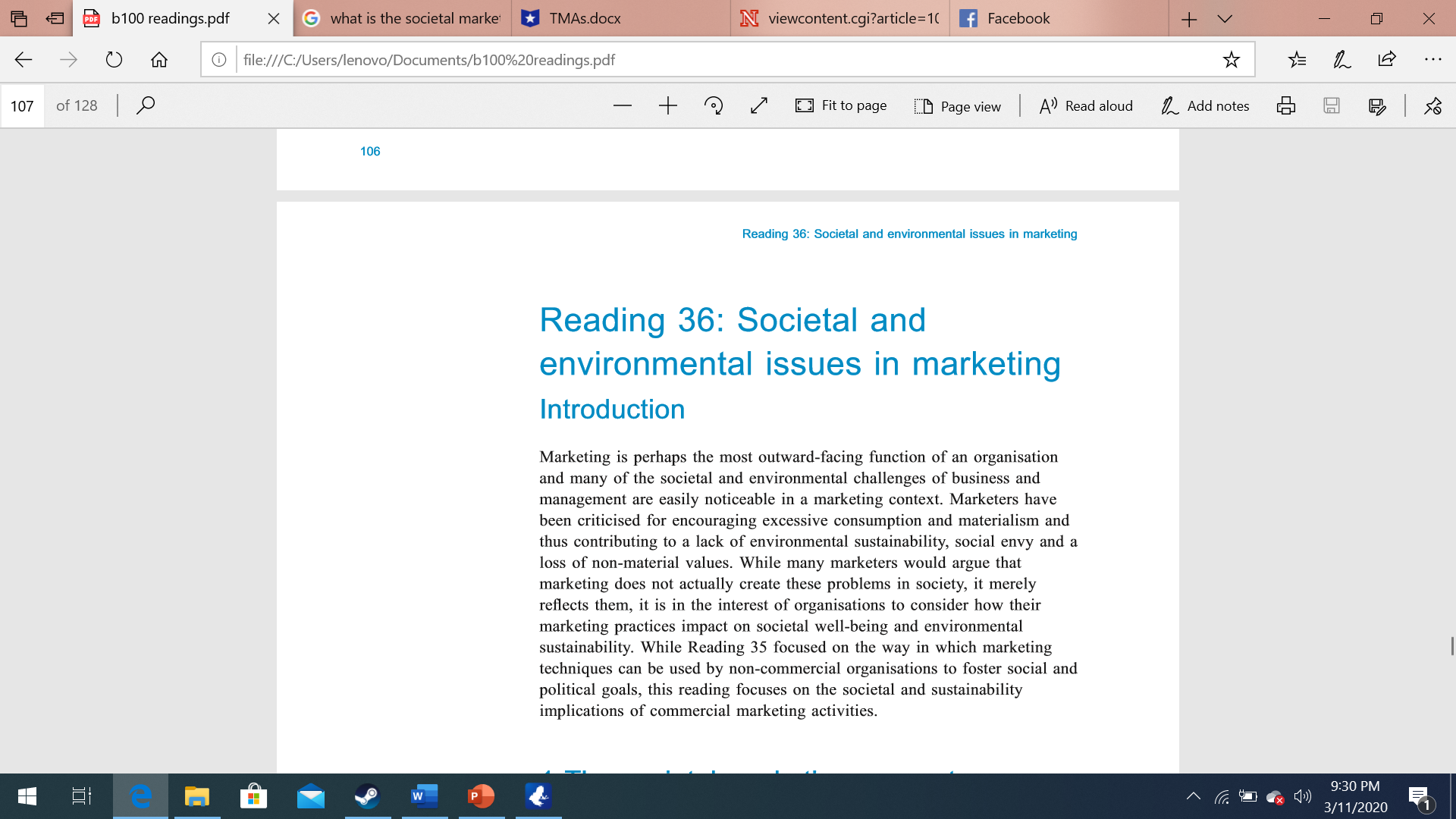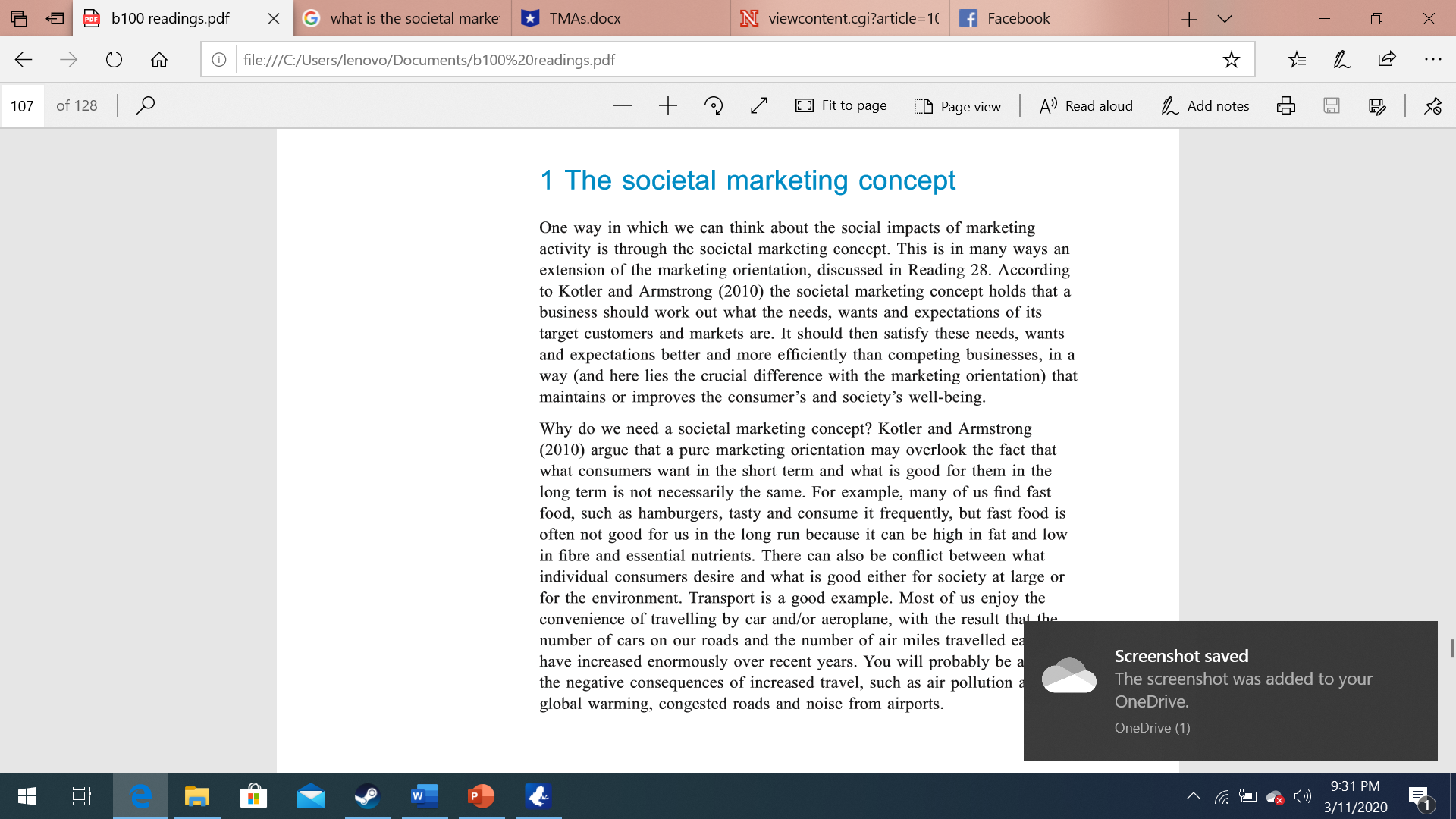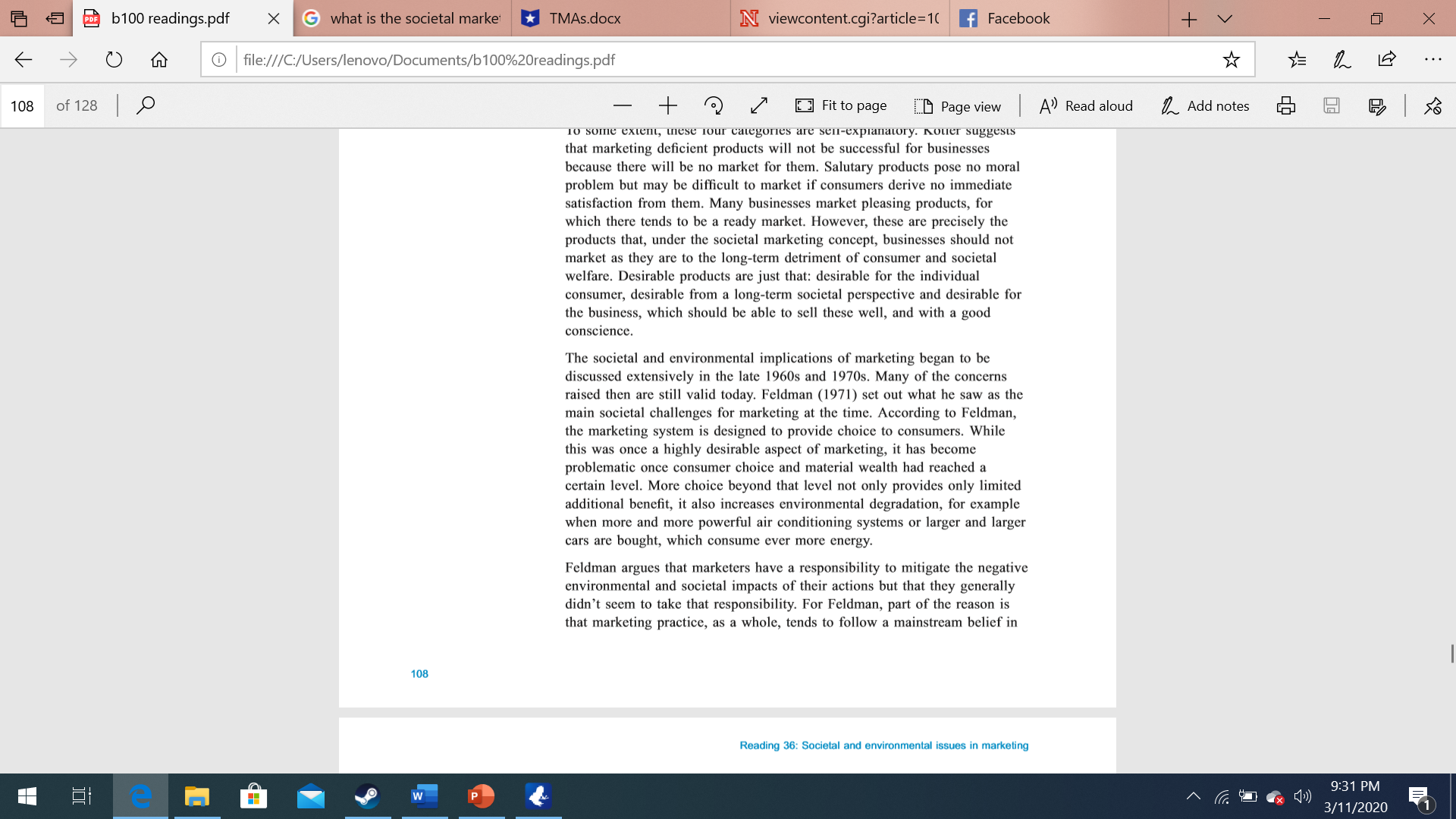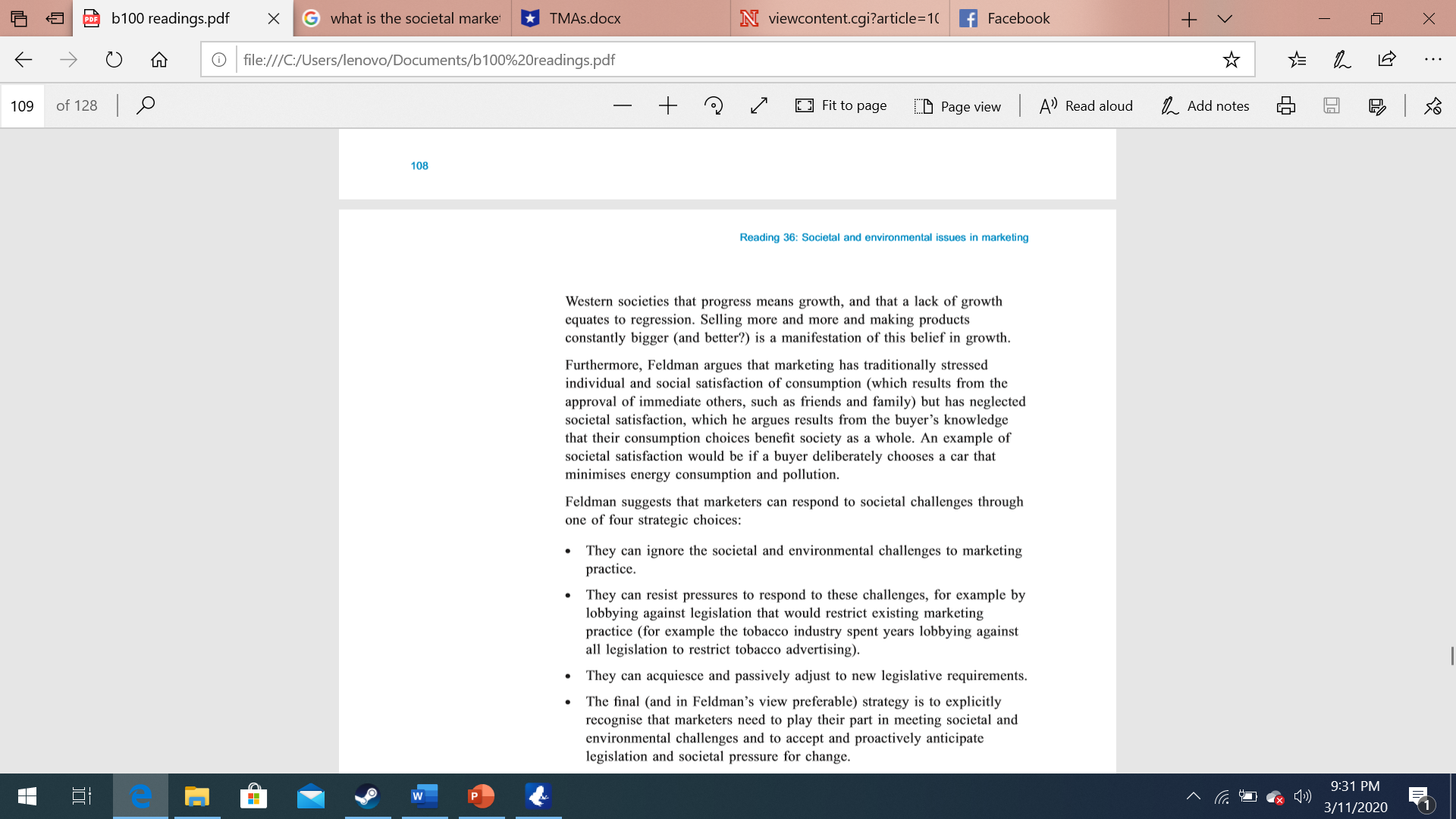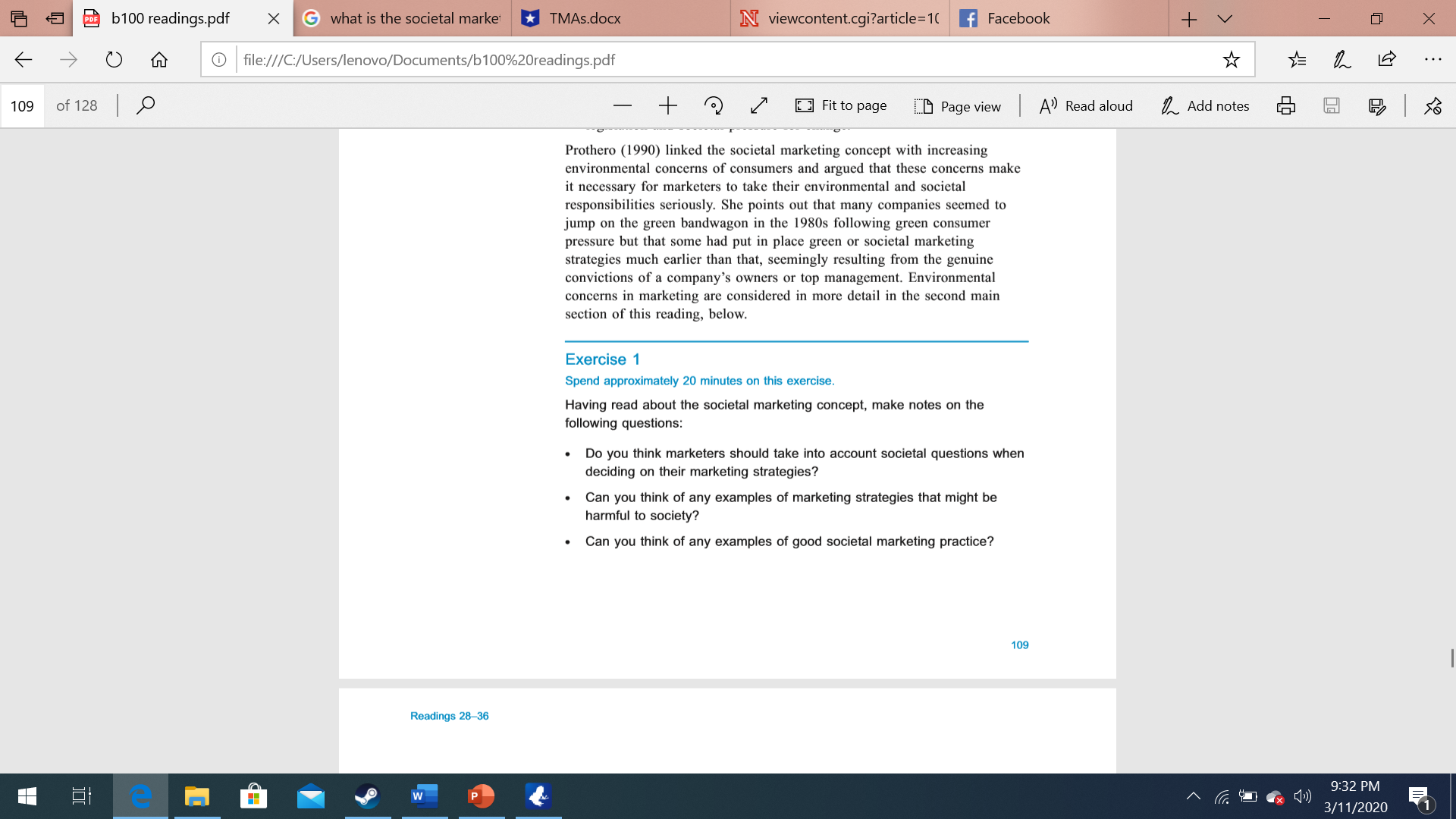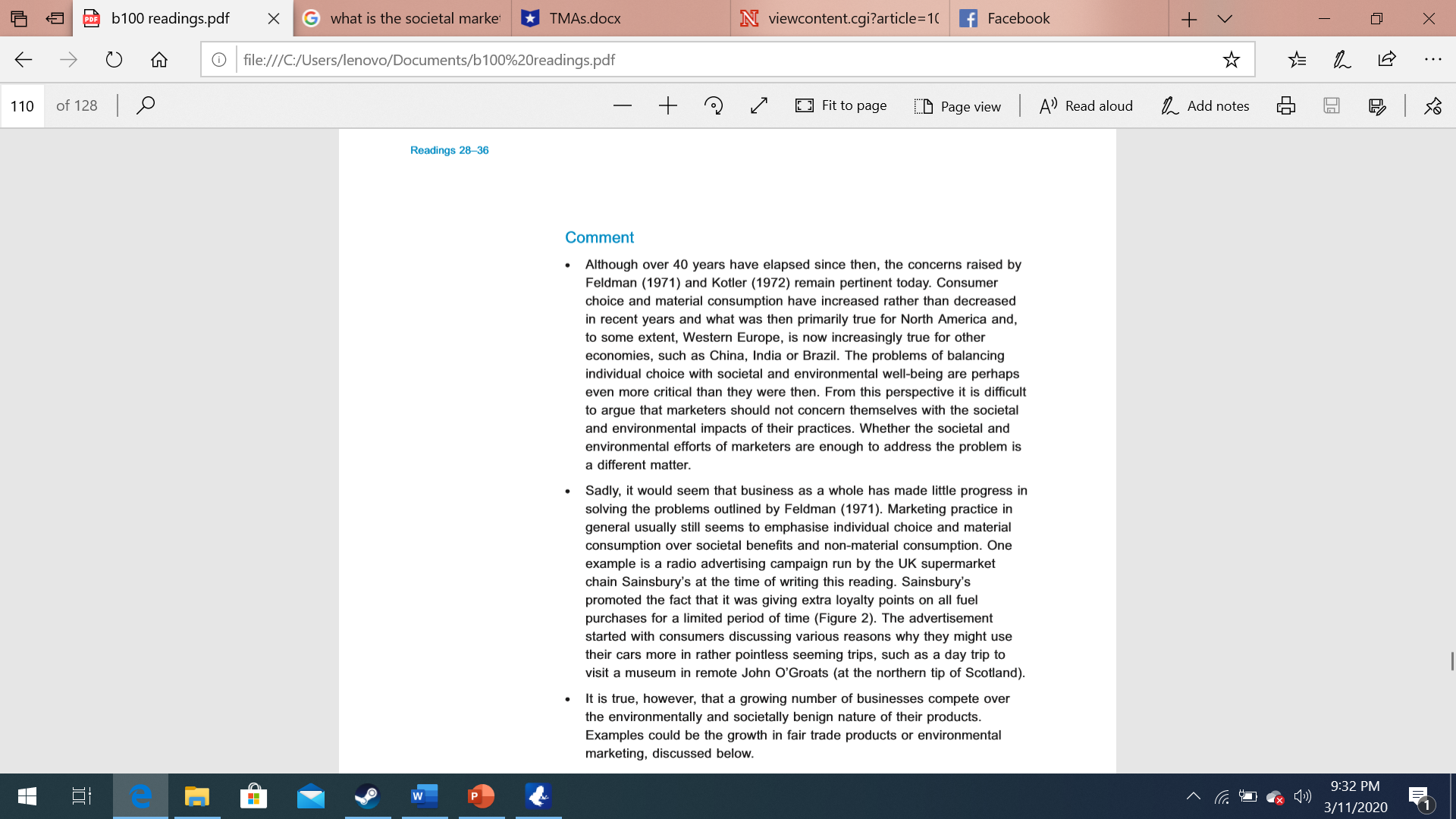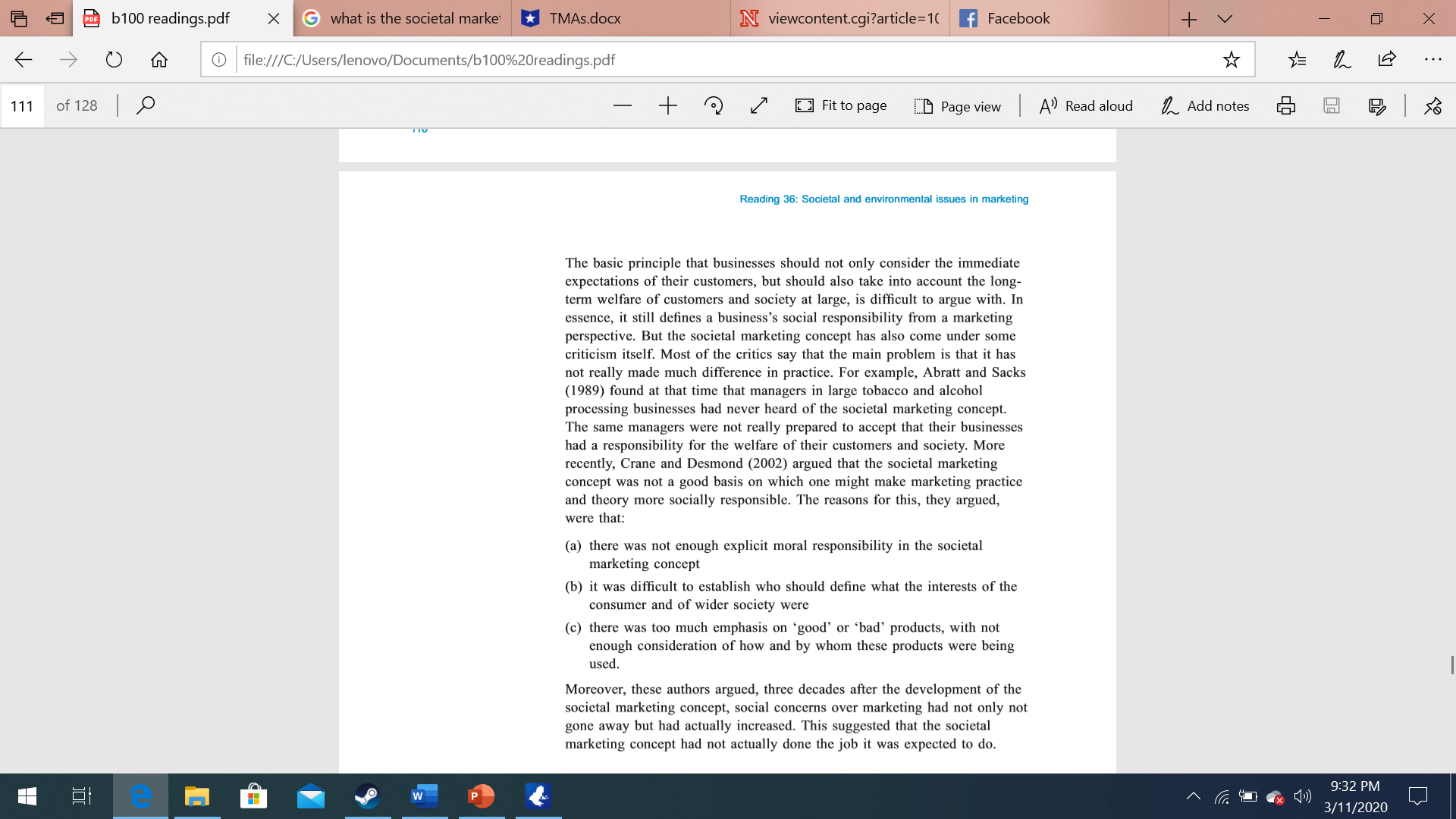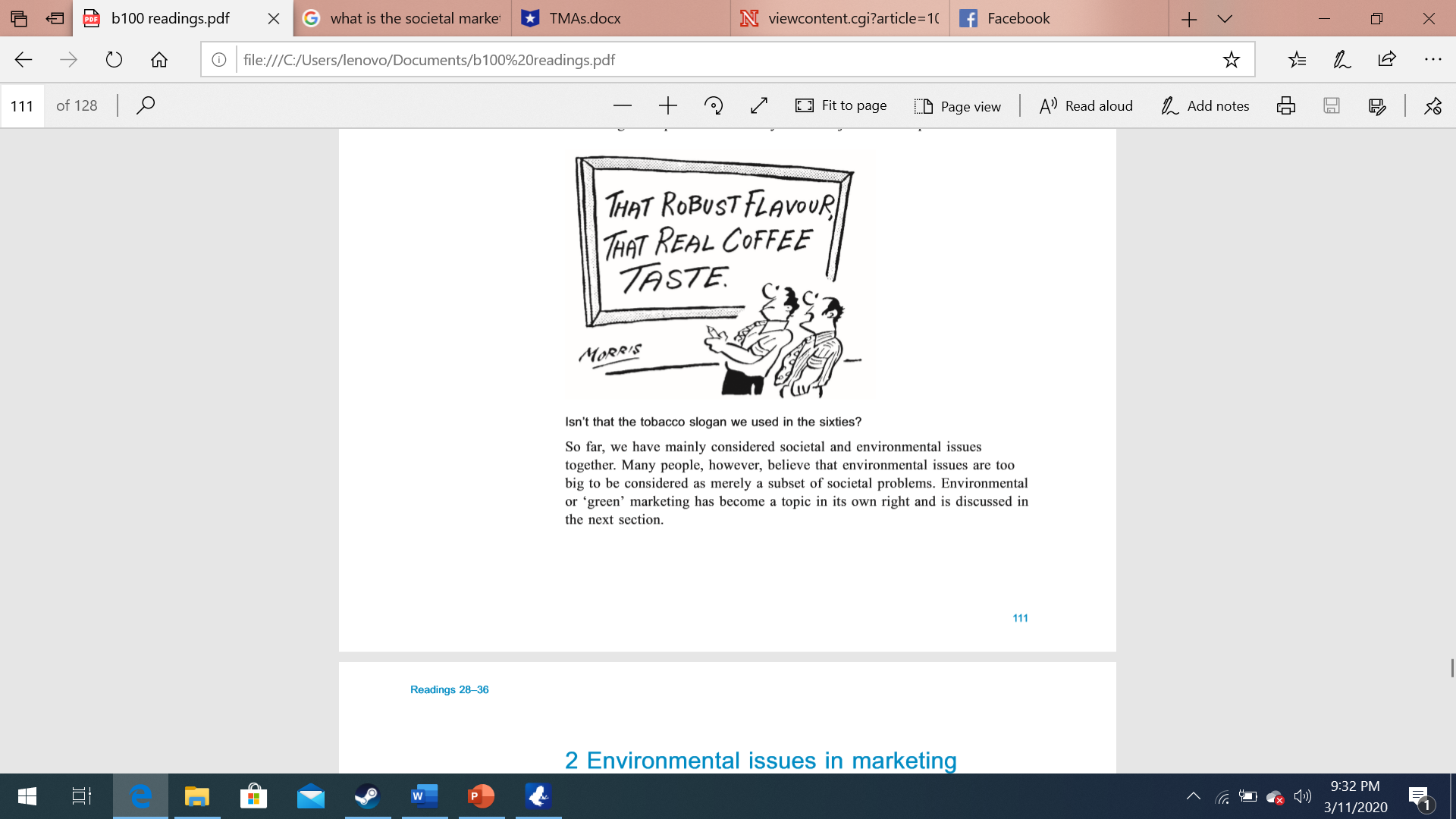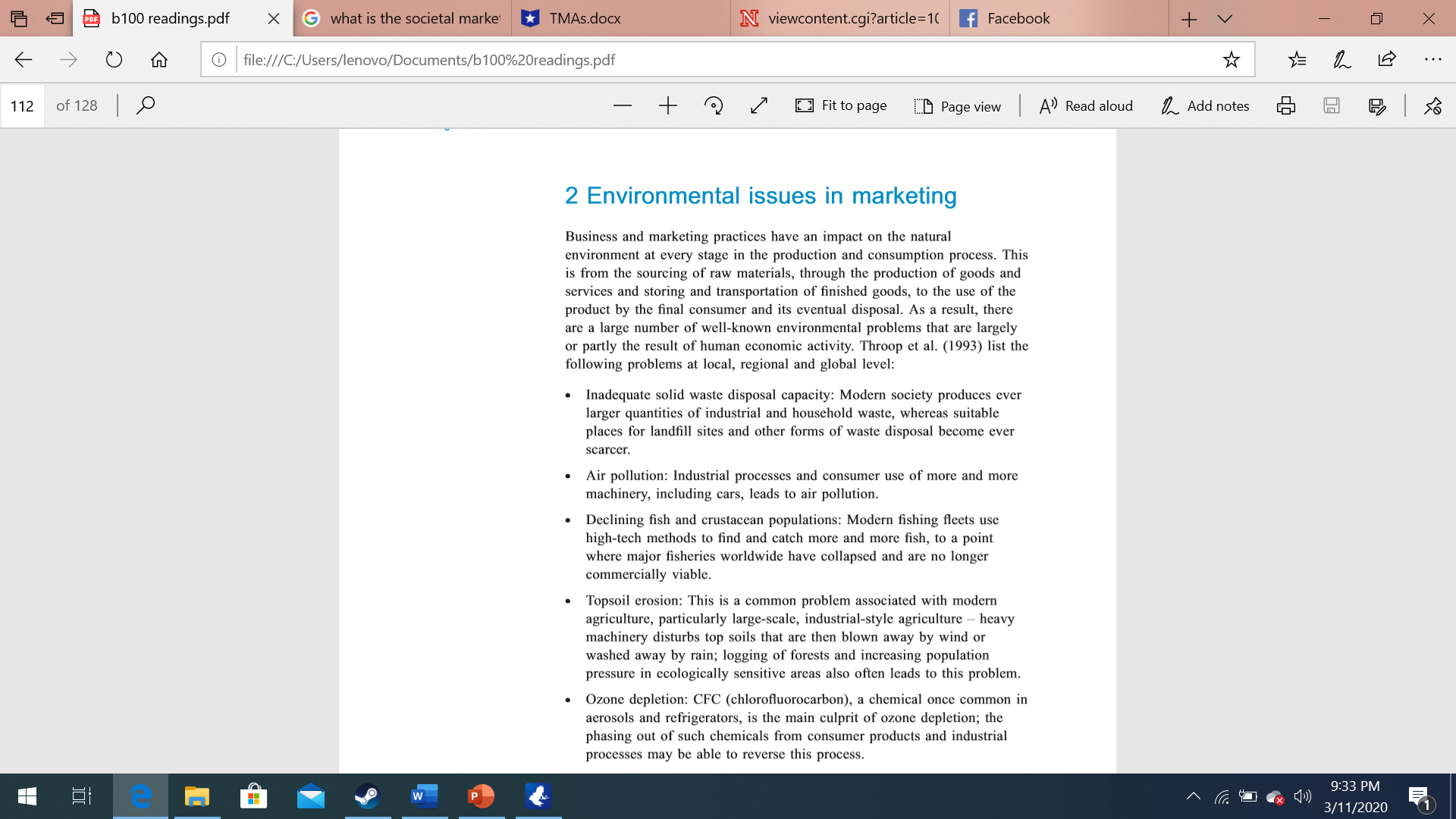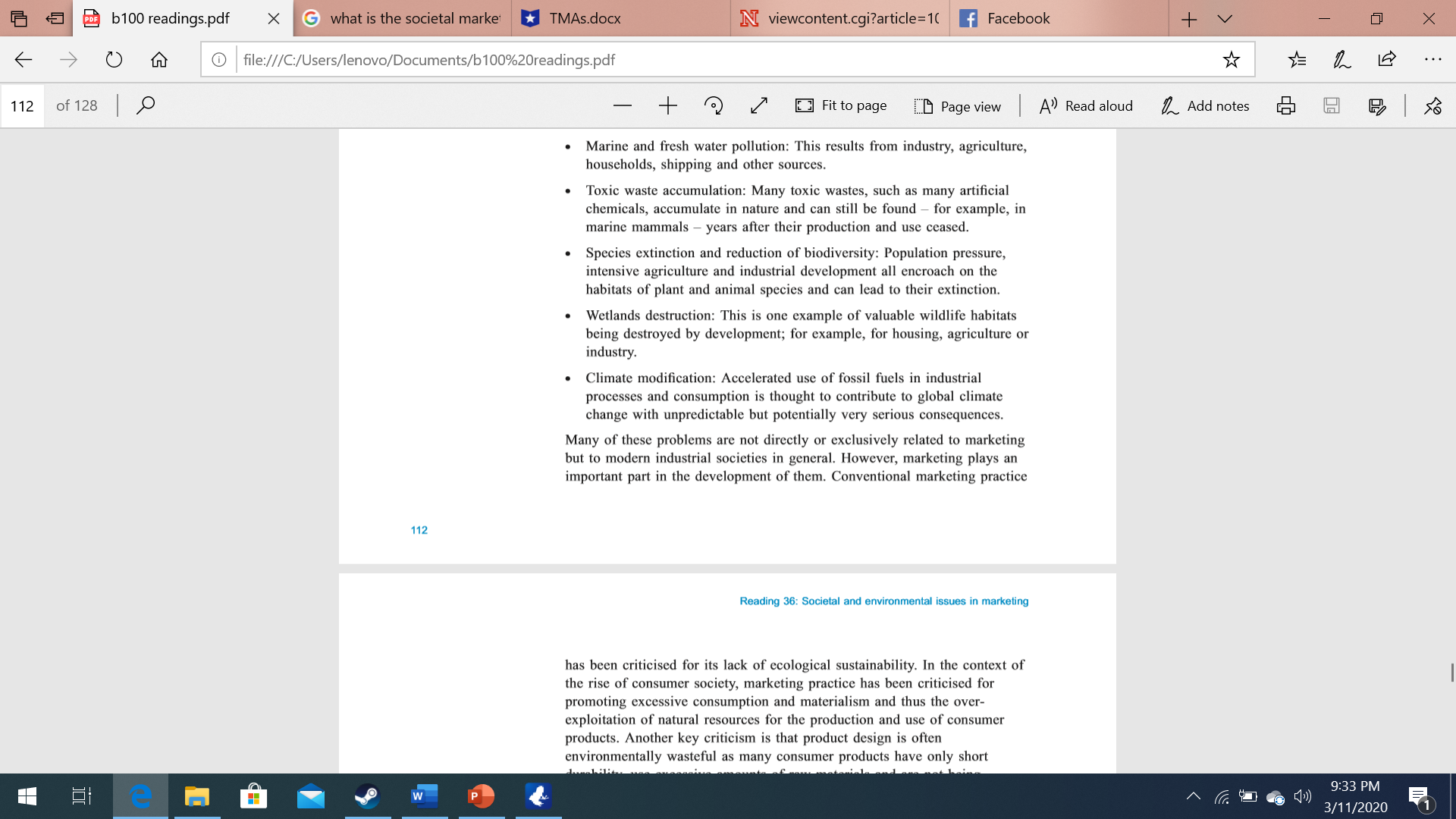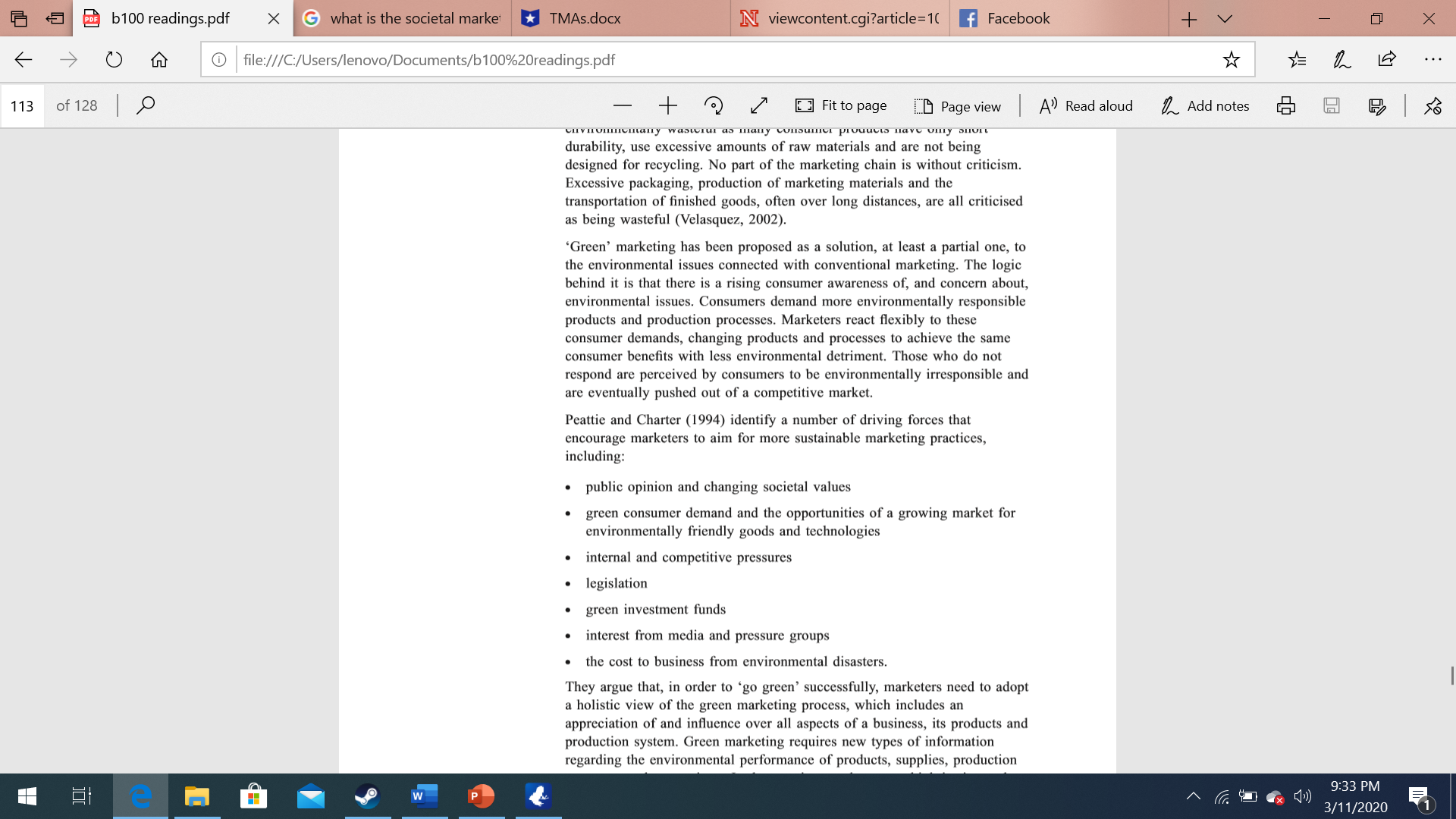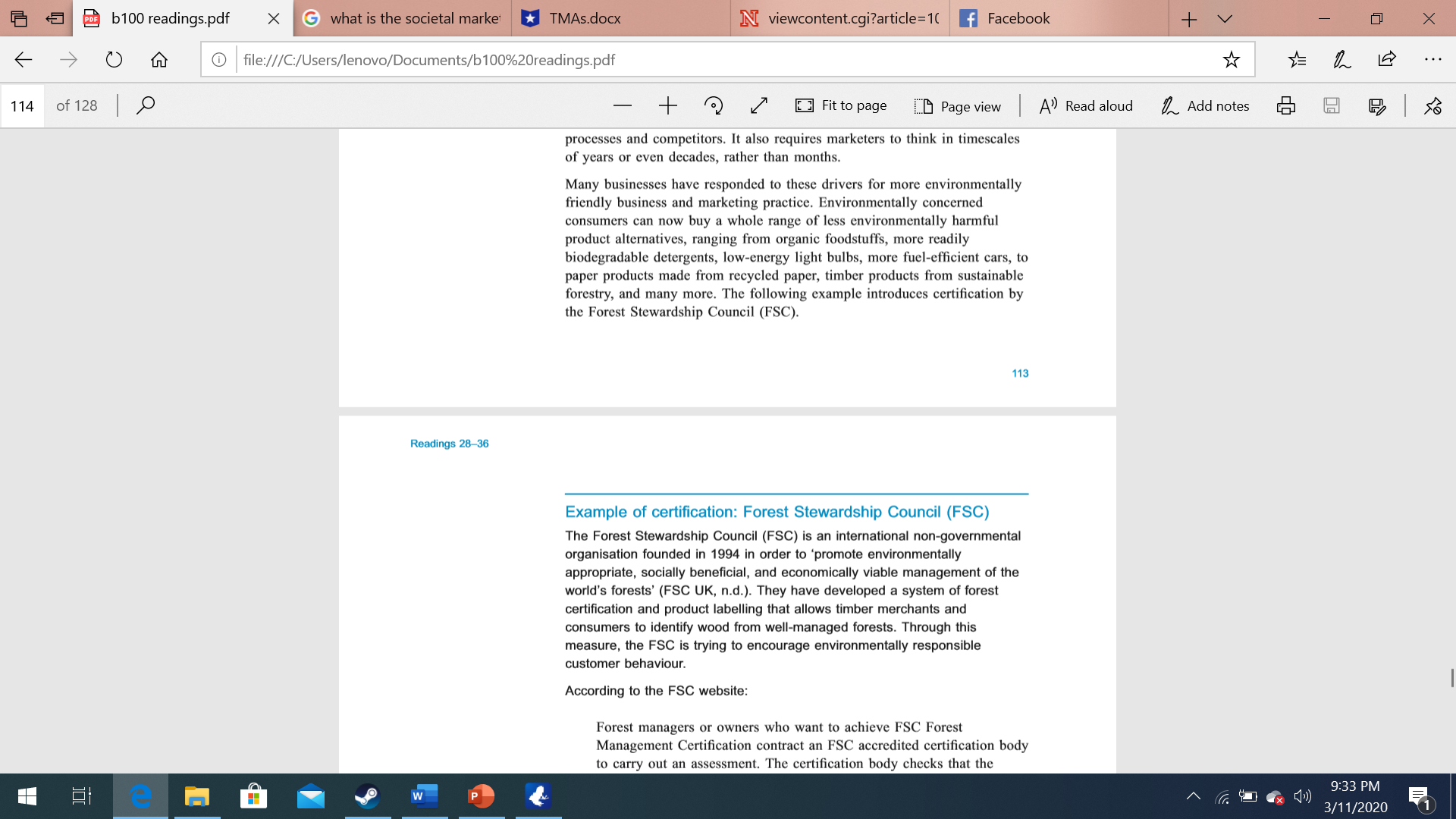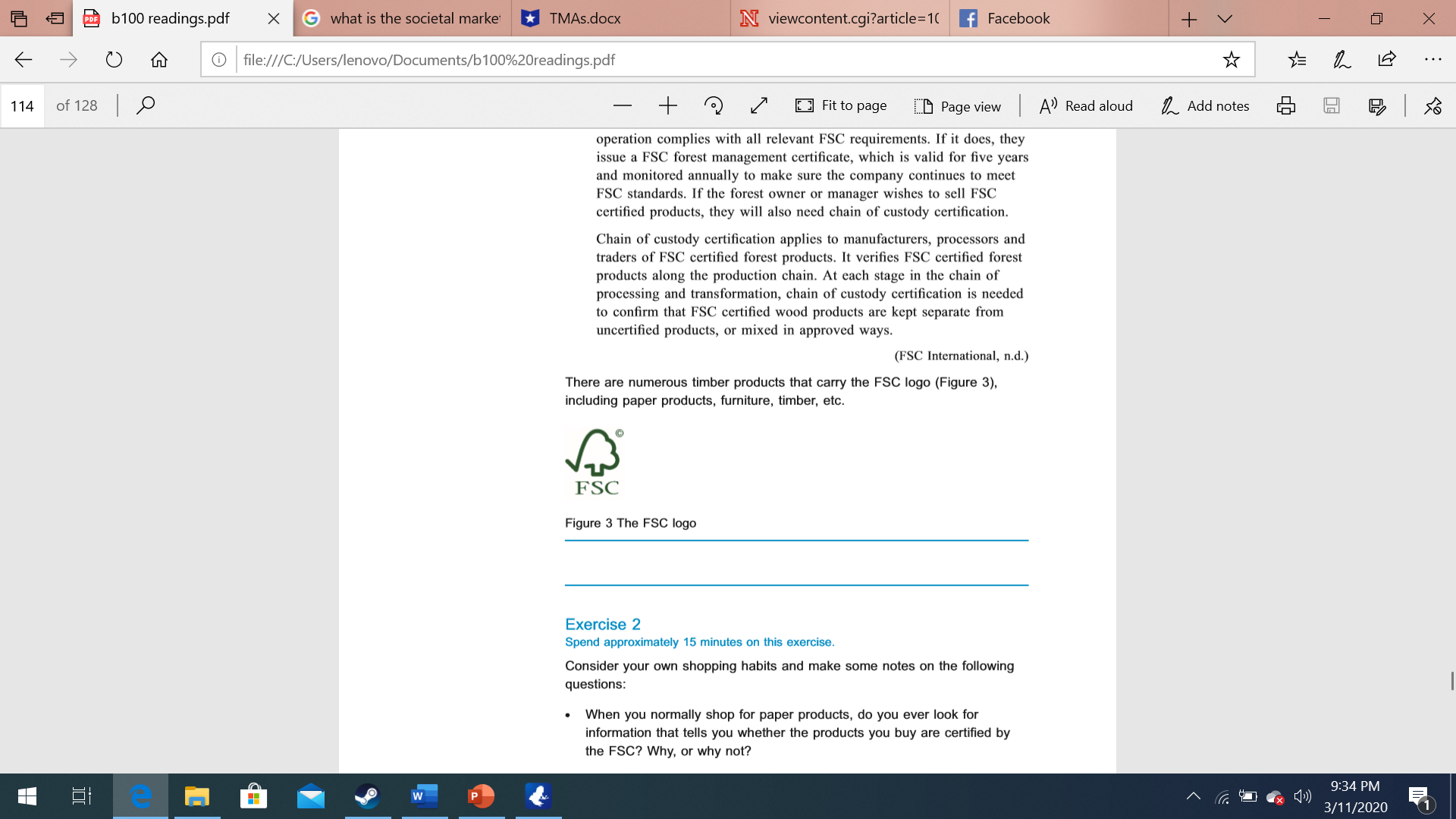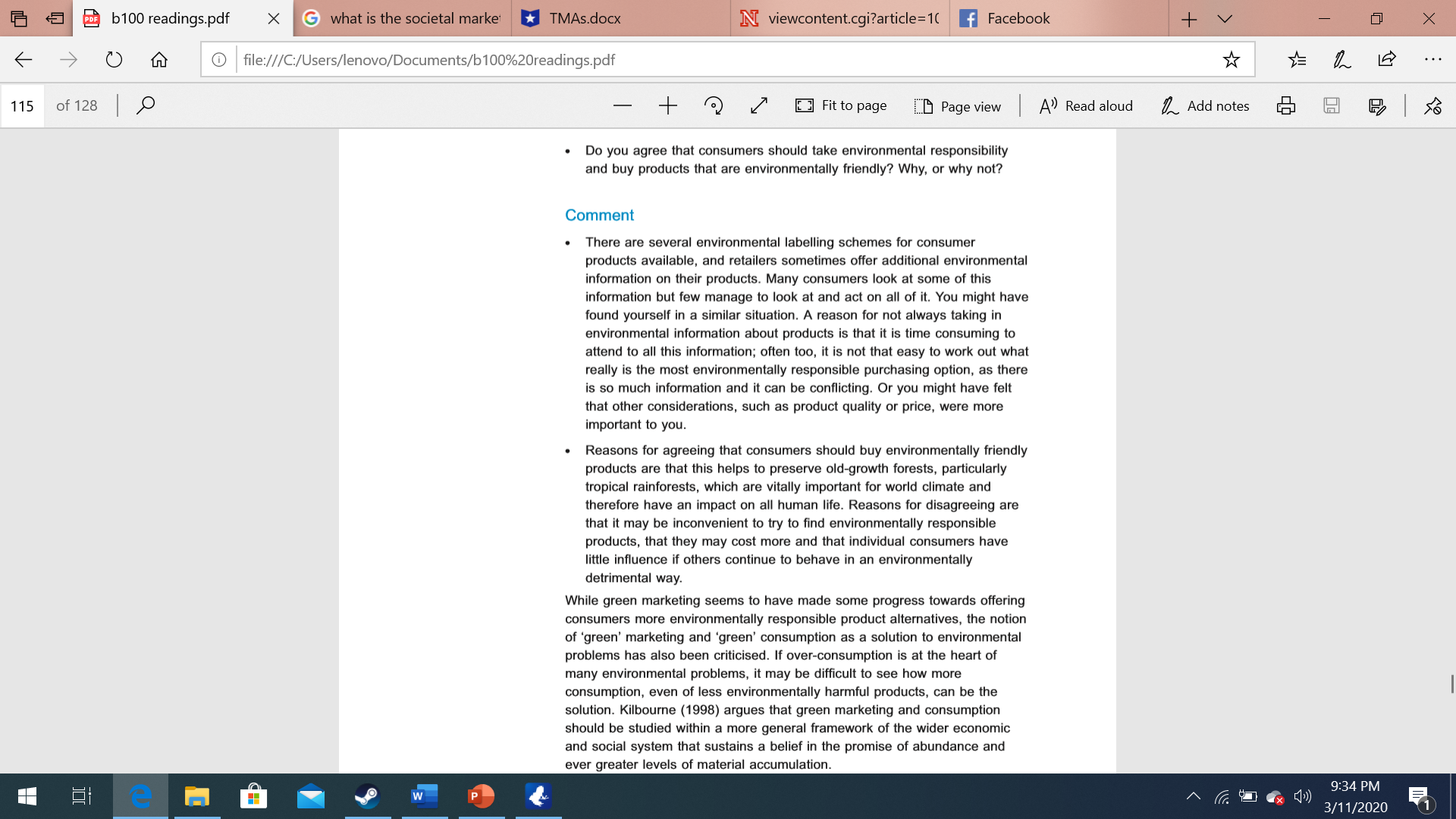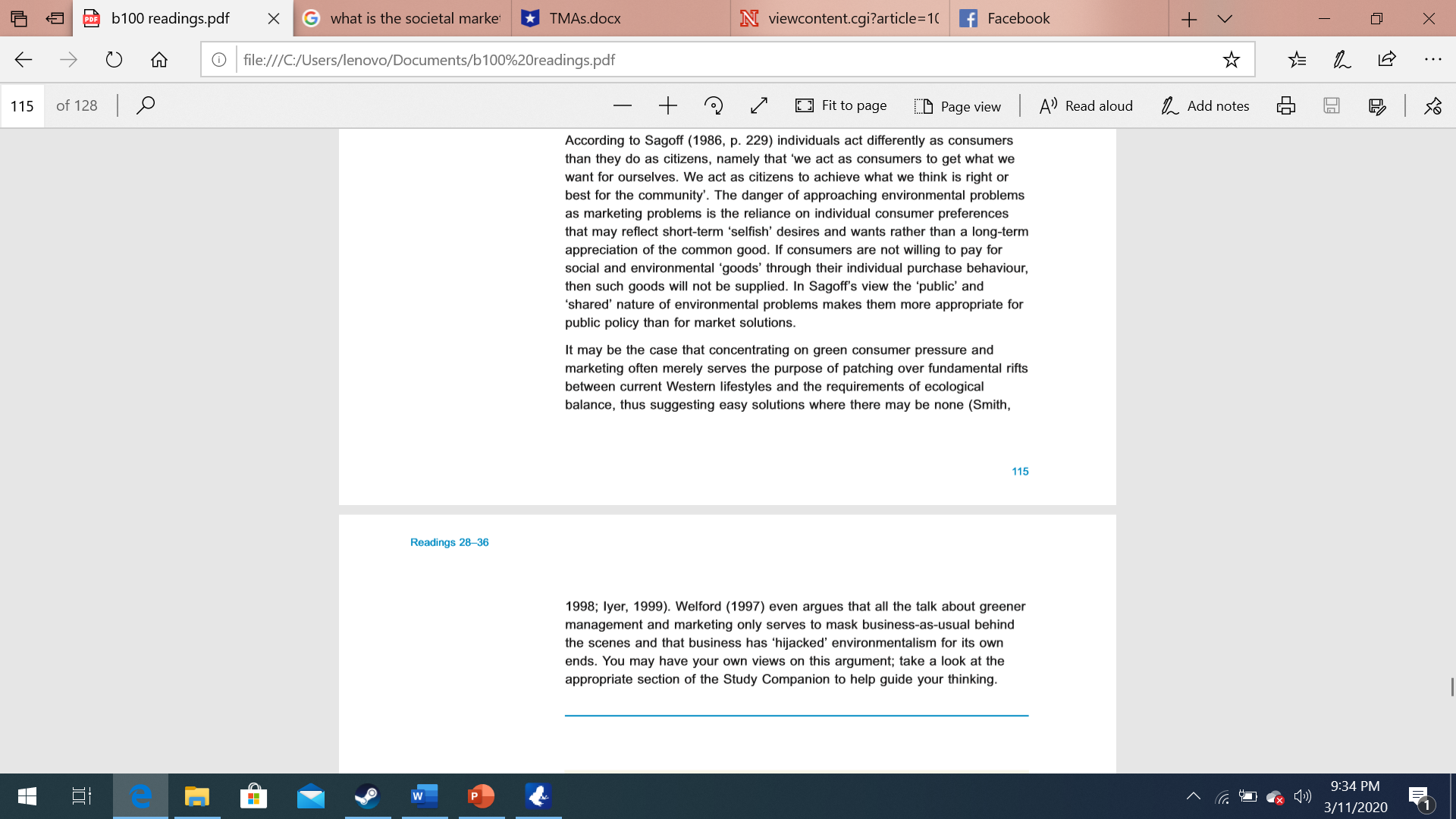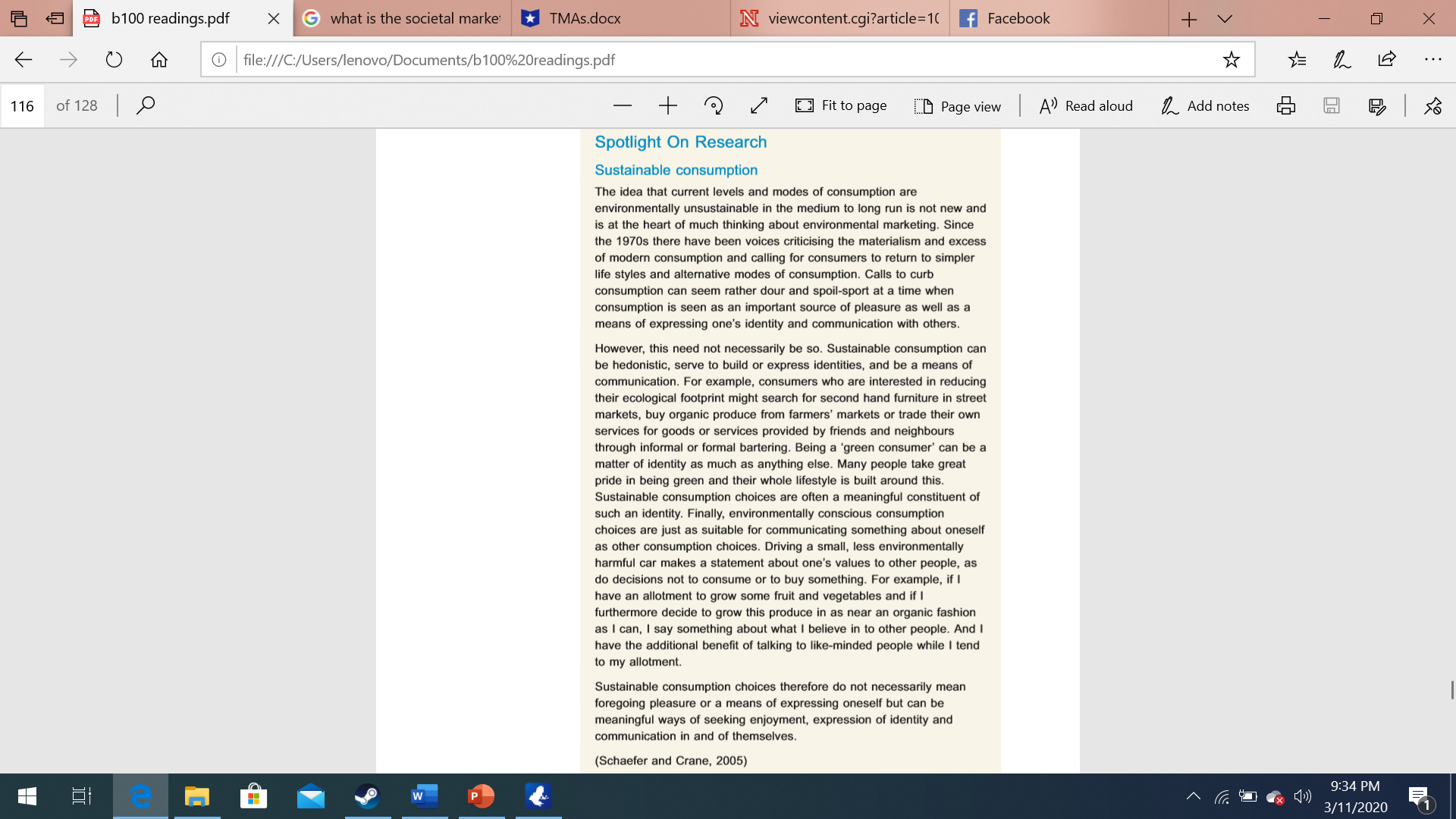describe the societal marketing concept using information from Block 4, Reading 36. identify and discuss the strategic choices of Tesla that you think it has considered for responding to the societal challenges. Introduce the notion of immediate satisfaction and the long-term welfare that a company's products can offer to its customers.
106 | + c) 'X. Reading 36: Societal and environmental issues in marketing Reading 36: Societal and environmental issues in marketing Introduction Marketing is perhaps the most outwardfacing function of an organisation and many of the societal and environmental challenges of business and management are easily noticeable in a marketing context. Marketers have been criticised for encouraging excessive consumption and materialism and thus contributing to a lack of environmental sustainability, social envy and a loss of non-material values. While many marketers would argue that marketing does not actually create these problems in society, it merely reects them, it is in the interest of organisations to consider how their marketing practices impact on societal well-being and environmental sustainability. While Reading 35 focused on the way in which marketing techniques can be used by non-commercial organisations to foster social and political goals, this reading focuses on the societal and sustainability implications of commercial marketing activities. Fit to page E:D Page view I A') Read aloud if: L Add notes eae tan-tale F' M ,4'1 'l #2020 $1 : content.cgi?article=1( '1 Facebook 9 9 C.) no G le:///C:/Users/Ienovo/Documents/b100%20readings.pdf {Ar {5 L E Fitto page E:D Page View I A') Read aloud L Add notes .43: E! [9,} I [ Read aloud Add notes So Do you agree that consumers should take environmental responsibility and buy products that are environmentally friendly? Why, or why not? Comment . There are several environmental labelling schemes for consumer products available, and retailers sometimes offer additional environmental information on their products. Many consumers look at some of this information but few manage to look at and act on all of it. You might have found yourself in a similar situation. A reason for not always taking in environmental information about products is that it is time consuming to attend to all this information; often too, it is not that easy to work out what really is the most environmentally responsible purchasing option, as there is so much information and it can be conflicting. Or you might have felt that other considerations, such as product quality or price, were more important to you. Reasons for agreeing that consumers should buy environmentally friendly products are that this helps to preserve old-growth forests, particularly tropical rainforests, which are vitally important for world climate and therefore have an impact on all human life. Reasons for disagreeing are that it may be inconvenient to try to find environmentally responsible products, that they may cost more and that individual consumers have little influence if others continue to behave in an environmentally detrimental way. While green marketing seems to have made some progress towards offering consumers more environmentally responsible product alternatives, the notion of 'green' marketing and 'green' consumption as a solution to environmental problems has also been criticised. If over-consumption is at the heart of many environmental problems, it may be difficult to see how more consumption, even of less environmentally harmful products, can be the solution. Kilbourne (1998) argues that green marketing and consumption should be studied within a more general framework of the wider economic and social system that sustains a belief in the promise of abundance and ever greater levels of material accumulation. e w P 9:34 PM 3/11/2020- Q b100readings.pdf X $Oh 115 oleS | ,0 O le:///C:/Users/Iencvo/Decuments/b100%20readings.pdf Readlngs zsas +ez According to Sago (1986, p. 229) individuals act dierently as consumers than they do as citizens, namely that 'we act as consumers to get what we want for ourselves. We act as citizens to achieve what we think is right or best for the community\". The danger ot approaching environmental problems as marketing problems is the reliance on individual consumer preterences that may reect shorttenn 'selsh' desires and wants rather than a long-term appreciation of the common good. If consumers are not willing to pay for social and environmental 'goods' through their individual purchase behaviour. then such goods will not be supplied. In Sagoft's view the 'public' and 'shared' nature of environmental problems makes them more appropriate for public policy than tor market solutions- Fit to page It may be the case that concentrating on green consumer pressure and marketing otterl merely serves the purpose of patching over fundamental rills between current Western lifestyles and the requirements of ecological balance, thus suggesting easy solutions where there may be none (Smith, 115 1995; Iyer, 1999), Weltord (1997) even argues that all me talk about greener management and marketing only serves to mask business-asusual behind the scenes and that business has 'hijacked' environmentalism for its own ends You may have your own views On this argument; take a look at the appropriate section of the Study Companion to help guide your thinking, 3 \"Fasebeok-r . Page view I A') Read aloud a a L a LAddnntes lg] B I {83 4 F' M 3,11 1,2020 PDE b100 readings.pdf X G what is the societal market TMAs.docx N viewcontent.cgi?article=1( f Facebook V X file:///C:/Users/lenovo/Documents/b 100%20readings.pdf . . . 116 of 128 - + Fit to page Page view A') Read aloud _ Add notes So Spotlight On Research Sustainable consumption The idea that current levels and modes of consumption are environmentally unsustainable in the medium to long run is not new and is at the heart of much thinking about environmental marketing. Since the 1970s there have been voices criticising the materialism and excess of modern consumption and calling for consumers to return to simpler life styles and alternative modes of consumption. Calls to curb consumption can seem rather dour and spoil-sport at a time when consumption is seen as an important source of pleasure as well as a means of expressing one's identity and communication with others. However, this need not necessarily be so. Sustainable consumption can be hedonistic, serve to build or express identities, and be a means of communication. For example, consumers who are interested in reducing their ecological footprint might search for second hand furniture in street markets, buy organic produce from farmers' markets or trade their own services for goods or services provided by friends and neighbours through informal or formal bartering. Being a 'green consumer' can be a matter of identity as much as anything else. Many people take great pride in being green and their whole lifestyle is built around this. Sustainable consumption choices are often a meaningful constituent of such an identity. Finally, environmentally conscious consumption choices are just as suitable for communicating something about oneself as other consumption choices. Driving a small, less environmentally harmful car makes a statement about one's values to other people, as do decisions not to consume or to buy something. For example, if I have an allotment to grow some fruit and vegetables and if I furthermore decide to grow this produce in as near an organic fashion as I can, I say something about what I believe in to other people. And I have the additional benefit of talking to like-minded people while I tend to my allotment. Sustainable consumption choices therefore do not necessarily mean foregoing pleasure or a means of expressing oneself but can be meaningful ways of seeking enjoyment, expression of identity and communication in and of themselves. (Schaefer and Crane, 2005) e W P 9:34 PM 3/11/2020
